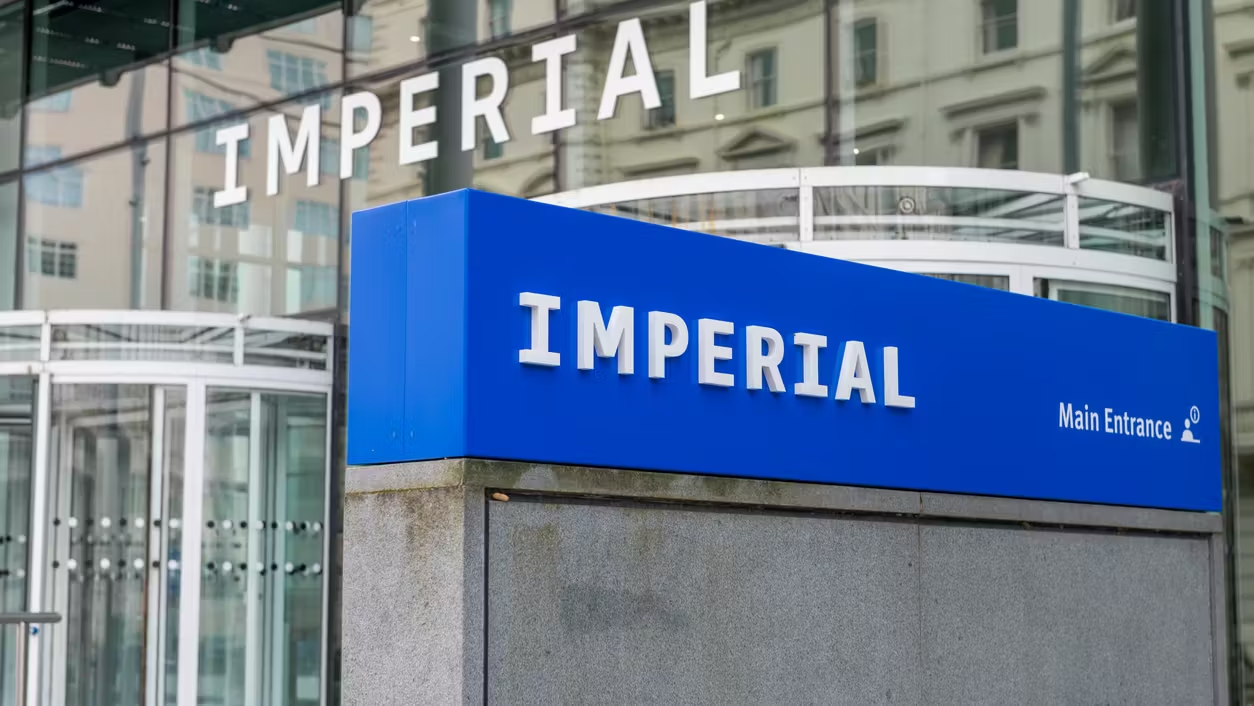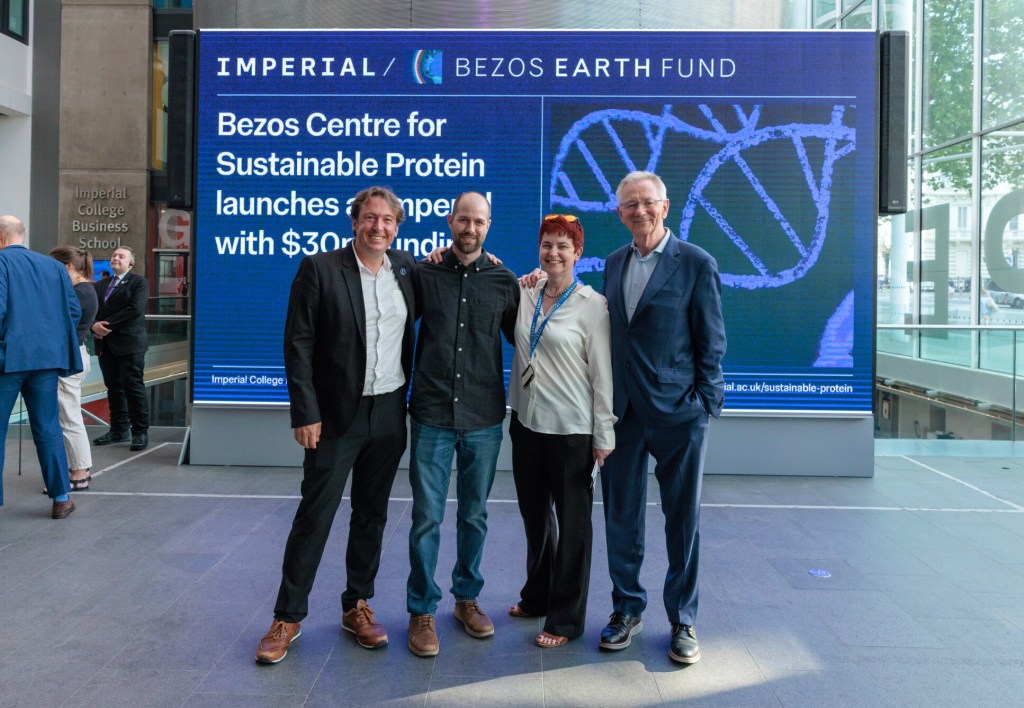The Bezos Center for Sustainable Protein at London’s Imperial College launched earlier this week with US$30 million dollars in funding.
According to a statement from The Bezos Earth Fund, the center will focus on developing innovative and evidence-based solutions through the design, delivery, and commercialization of alternative food products. In particular, The Center – which spans seven Imperial academic departments – will advance research into precision fermentation, cultivated meat, bioprocessing and automation, nutrition, and AI and machine learning.
The Earth Fund has committed $100 million to the establishment of a network of open-access R&D centers focused on sustainable protein alternatives, with The Bezos Center for Sustainable Protein at North Carolina State University launching only a few weeks ago.
The Earth Fund said The Center at Imperial will use a combination of rational and computational-guided engineering strategies with automation at biofoundries – where cells are turned into mini-factories producing useful products – to accelerate the development and scaling up of new bio-based processes.
It will also encompass the Center for Synthetic Biology, SynbiCITE, the UK’s industrial translation center for synthetic biology, and the Center for Translational Nutrition & Food Research, which has partnerships with Quorn, Nestle, Unilever, and Waitrose, among others.

Professor Hugh Brady, President of Imperial College London, said: “Imperial has the leading-edge research, innovation, partnerships and convening power to advance global food systems and we are very excited by the potential of our new Bezos Center for Sustainable Protein.”
Dr. Andrew Steer, President and CEO of the Earth Fund said: “The Bezos Earth Fund is proud to support Imperial as the home of our second sustainable protein center. By 2050 the world population will be over 10 billion, so now is the time to rethink the way we produce and consume food. This work will help ensure that our future includes more protein options – and that they taste great, are nutritious and come at low cost.”
Director of the new center, Dr. Rodrigo Ledesma-Amaro, from the Department of Bioengineering at Imperial, said: “The Center’s ethos is that bio-engineered solutions can – and should – be both planet and people-positive. Imperial is uniquely positioned to harness the potential of engineering biology to accelerate the alt-protein revolution and transform global food systems.”
Dr. Andy Jarvis, the Earth Fund’s Director of Future of Food, said: “Later is dangerously too late if we’re to think about growing our world’s protein sources. Imperial College London has led pioneering efforts in the field of Engineering Biology, perfectly positioning the university to advance sustainable protein options that will satisfy the growing global masses.”

The Earth Fund was established in 2020 from a commitment of $10 billion from Amazon founder and executive chairman Jeff Bezos to be disbursed as grants to address climate and nature challenges within the current decade.
However, Amazon has faced some scrutiny in recent years regarding its commitments to achieving net zero, with some critics saying the company is moving too slowly and casting doubts on its emissions calculation methods.
According to Amazon’s latest sustainability report, the company’s carbon emissions dropped only 0.4% in 2022 compared with 2021, a modest decrease for Amazon, whose emissions grew by roughly 10 million metric tons annually between 2019 and 2021.
To stay up-to-date on the latest industry headlines, sign up to Future Alternative’s enewsletter.
Posted on:


